On the morning of June 22, according to the program of the 5th Session, the National Assembly will discuss in the hall the draft Law on Telecommunications (amended). Notably, the regulations on the management of data center services and cloud computing are attracting the attention not only of National Assembly deputies but also of businesses and society. Many investors are concerned that if these two types of services are put under the management of the Law on Telecommunications (amended), it will greatly affect the ability to attract investment.
Services with great potential
According to many strategists, by 2025, the cloud computing market will be larger than the telecommunications market, helping to accelerate the digital transformation process. Market research company ReportLinker forecasts that the potential of the cloud computing market in Vietnam will reach 427 million USD by 2025. Specifically, according to a 2021 survey by the Institute for Enterprise Value Research under IBM Corporation (USA), 56% of businesses in Vietnam are using cloud computing services.
This shows the great potential of the market and the demand for cloud computing services in Vietnam in the coming time. In fact, according to domestic media, in the period 2020-2021, this market in Vietnam only reached about 4,500 billion VND. Therefore, Vietnam is a promising market for developing data center (DC) and cloud computing services due to the increasing demand of businesses, along with the development of the digital economy .
In the world and in the Asian region, cloud computing services and data centers are considered two essential services of the digital economy and countries are interested in building orientations and development strategies along with preferential policies to attract investors to these services. Not only Vietnam but many countries in the Asian region such as India, Malaysia, Indonesia, etc. have set the goal of developing into a Digital Hub/Data center Hub of the region and globally. These countries have introduced many policies to encourage and give incentives to investment and development of data centers and cloud computing services. This reality requires Vietnam to have appropriate and clear policies to increase market competitiveness in mobilizing and encouraging investment in infrastructure construction and development of these essential services.
 |
The draft Law on Telecommunications (amended) attracts social attention |
Concerns about licensing procedures and investment conditions
The Telecommunications Law was first issued in 2009. After 14 years of implementation, many shortcomings have been revealed and need to be amended and supplemented to better suit the development of the telecommunications industry. In the draft Telecommunications Law (amended) submitted to the National Assembly for comments for the first time at the 5th Session, the scope of regulation was expanded to include 3 new services: data centers, cloud computing and basic telecommunications services on the internet (OTT telecommunications). In the Verification Report, the National Assembly's Committee on Science, Technology and Environment said that the majority of opinions in the Committee agreed to expand the scope of regulation.
Meanwhile, businesses and investors in data center and cloud computing services in Vietnam are concerned about this change. Businesses believe that the new regulations may create new investment conditions, licensing procedures and foreign investors' capital contribution ratios.
Currently, data centers and cloud computing are understood as data storage services specified in Article 18 of the Law on Information Technology and a number of guiding documents, accordingly there are no restrictions on foreign investment and no need to apply for a telecommunications license.
The inclusion of data center and cloud computing services in the group of telecommunications services may entail the application of investment conditions and telecommunications licensing procedures as applied to other telecommunications services, thereby adversely affecting foreign investment in Vietnam, especially foreign data center service providers that are considering investing billions of dollars in domestic infrastructure.
According to the free trade agreements that Vietnam is participating in such as WTO, CPTPP or EVFTA, Vietnam has not committed to opening the telecommunications market. Accordingly, foreign investors investing in telecommunications services will be limited in investment capital ranging from 49% to 65% depending on the type of telecommunications service and the nationality of the investor.
Article 12 of the draft stipulates that “the form and conditions of foreign investment and the capital contribution ratio of foreign investors in telecommunications services business must comply with the provisions of Vietnamese law and international treaties to which Vietnam is a member”. Thus, if there are no clear regulations for data center and cloud computing services, foreign investors in these two types of services will also be limited in terms of investment capital ratios as well as market access conditions as for investment activities in telecommunications services. In addition, both domestic and foreign enterprises when investing in projects to build data centers or provide cloud computing services in Vietnam will also have to apply for a license to provide telecommunications services. Therefore, including data center and cloud computing services in the telecommunications service group will create legal restrictions and barriers as well as many administrative procedures for investment activities and provision of these services, reducing Vietnam's competitiveness in attracting investment in data storage services and thereby affecting the development of the digital data industry in particular and the digital economy in general.
Need to study international experience
According to some research reports on international experience in managing cloud computing services and data centers, most countries do not regulate and manage these two types of services as telecommunication services because the nature of these services is different. Cloud computing services and data centers are accessed via telecommunication networks (or via telecommunication services) and are managed under the general framework of existing laws on electronic games, websites, financial transactions, music and cinema. For countries that have regulations on managing data center services and cloud computing, they often follow the direction of applying technical standards built on the basis of international standards.
According to some recommendations from experts, instead of being regulated in the Telecommunications Law, data center services and cloud computing should be regulated in the Digital Technology Industry Law that the Ministry of Information and Communications is drafting. This will encourage the two types of services mentioned above to develop strongly and openly, remove restrictions and conditions on investment, thereby enhancing Vietnam's competitiveness compared to other countries in the region and at the same time increasing foreign investment attraction in these two types of services.
During the discussion session at the National Assembly on June 10, National Assembly Chairman Vuong Dinh Hue also requested that the drafting agency study international experience in regulations on cloud computing services and data centers as well as carefully assess the impact of including these services in the draft to encourage investment and development in this field.
HOANG CHUNG
Source




![[Photo] Cat Ba - Green island paradise](/_next/image?url=https%3A%2F%2Fvphoto.vietnam.vn%2Fthumb%2F1200x675%2Fvietnam%2Fresource%2FIMAGE%2F2025%2F12%2F04%2F1764821844074_ndo_br_1-dcbthienduongxanh638-jpg.webp&w=3840&q=75)



























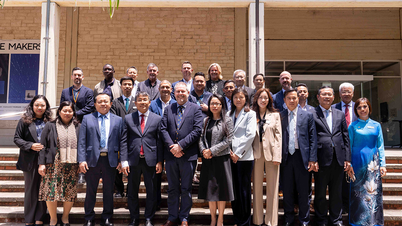







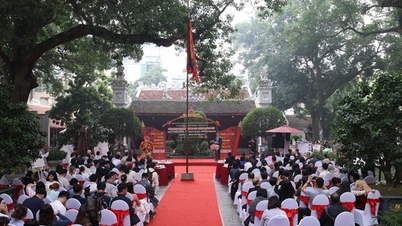


















![[VIMC 40 days of lightning speed] Hai Phong Port determined to break through, reaching the target of 2 million TEUs by 2025](https://vphoto.vietnam.vn/thumb/402x226/vietnam/resource/IMAGE/2025/12/04/1764816441820_chp_4-12-25.jpeg)














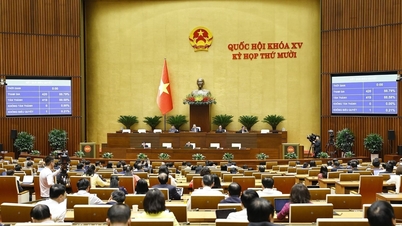



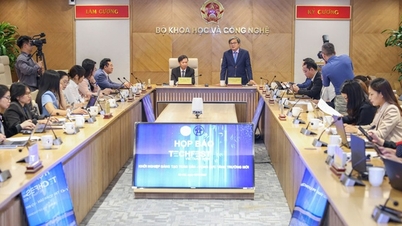





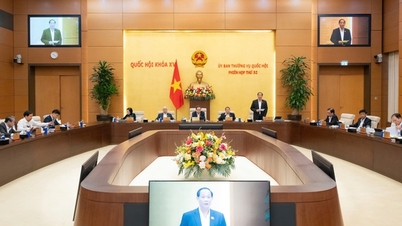







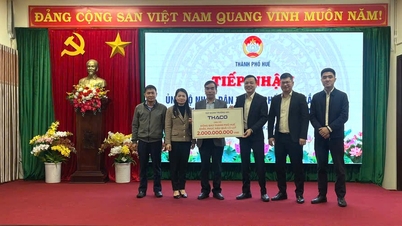

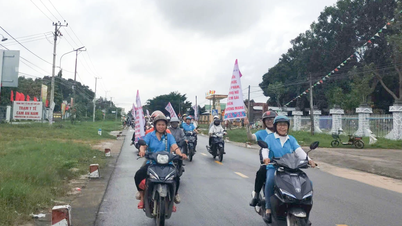


















Comment (0)